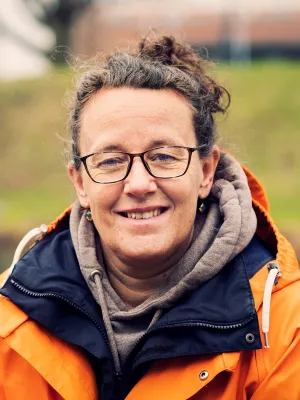
Johanna Alkan Olsson
Social environmental scientist

Use of participatory scenario modeling as platforms in stakeholder dialogues
Author
Editor
- Shahbaz Khan
- Huber Savenije
- Siegfried Demuth
- Pierre Hubert
Summary, in English
Water related problems are characterized by complexities, uncertainties, and conflicting interests and there is no single “optimal” way to approach these “wicked” problems. Model-assisted participatory processes have been suggested as one way to meet these challenges. However, the use of models as a
scenario tools for local planning of mitigation and adaptation strategies addressing environmental challenges is more often an exception than a common practice. In order to assess future possibilities for successful use
of participatory scenario modelling, experiences from two model-facilitated projects are presented and discussed. The participatory scenario modelling described in this paper, implies modelling with people, as opposed to agent based modelling which is based on modelling of people’s behaviour and its consequences. In the first project, a participatory model-assisted process was conducted to formulate a locally proposed remedy plan to reduce nitrogen and phosphorus loads in local lakes and the coastal zone. In the second project, a similar process was used to formulate local adaptation strategies to climate change impacts on water allocation, farming and the environment. Based on the experiences of these projects; recommendations are made to how model-assisted participatory processes can best be organised and conducted. A key message is that modellers need to rethink their role as “solution providers” to become “process facilitators”.
scenario tools for local planning of mitigation and adaptation strategies addressing environmental challenges is more often an exception than a common practice. In order to assess future possibilities for successful use
of participatory scenario modelling, experiences from two model-facilitated projects are presented and discussed. The participatory scenario modelling described in this paper, implies modelling with people, as opposed to agent based modelling which is based on modelling of people’s behaviour and its consequences. In the first project, a participatory model-assisted process was conducted to formulate a locally proposed remedy plan to reduce nitrogen and phosphorus loads in local lakes and the coastal zone. In the second project, a similar process was used to formulate local adaptation strategies to climate change impacts on water allocation, farming and the environment. Based on the experiences of these projects; recommendations are made to how model-assisted participatory processes can best be organised and conducted. A key message is that modellers need to rethink their role as “solution providers” to become “process facilitators”.
Department/s
- LUCSUS (Lund University Centre for Sustainability Studies)
Publishing year
2010
Language
English
Publication/Series
IAHS Publication
Links
Document type
Report chapter
Publisher
IAHS Press
Topic
- Earth and Related Environmental Sciences
- Social and Economic Geography
Status
Published
Report number
38
ISBN/ISSN/Other
- ISSN: 0144-7815
- ISBN: 978-1907161117